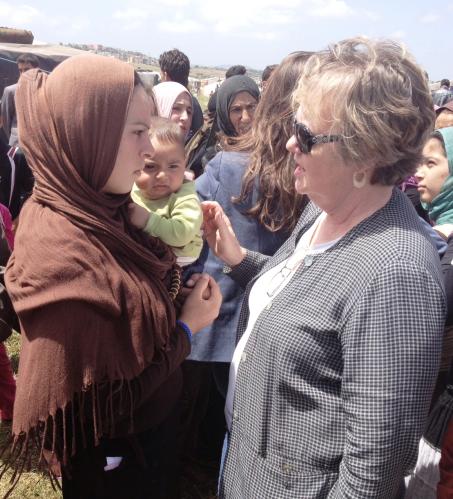

10:00 am EDT - 11:30 am EDT
Past Event
10:00 am - 11:30 am EDT
1775 Massachusetts Avenue NW
Washington, DC
20036
The mounting civilian casualties in Syria and the displacement of millions of Syrians – with prospects of more casualties and displacement – make this the most daunting humanitarian crisis facing the world today. Over two million Syrians are presently registered as refugees in neighboring countries like Jordan, Turkey and Lebanon, which are struggling to meet the needs of Syrian refugees arriving at their borders. Five million Syrians have been internally displaced and delivery of humanitarian aid inside the country is incredibly difficult. The destruction and displacement have political implications for the region and for the international community.
On September 18, the Brookings Foreign Policy Program hosted a discussion on the humanitarian crisis in Syria and its political consequences and launched a new policy brief, “Syrian Crisis: Massive Displacement, Dire Needs and a Shortage of Solutions.” Senior Fellow Elizabeth Ferris, co-director of the Brookings-LSE Project on Internal Displacement, introduced the policy brief, provided insights based on recent travel to the region and moderated the discussion. The head of U.S. delegation at the International Committee of the Red Cross, François Stamm, provided perspectives based on their work inside Syria. Salman Shaikh, director of the Brookings Doha Center, offered comments on both the immediate and long-term political effects of the humanitarian crisis.
Related Content

Elizabeth Ferris
July 10, 2013
2013
Brookings Institution, Washington DC
Thursday, 3:00 pm - 4:30 pm EDT

Daniel L. Byman, Michael Doran, Salman Shaikh, Jeremy Shapiro
August 27, 2013
10:00 am - 11:30 am
On September 18, the Brookings Foreign Policy Program hosted a discussion of the humanitarian crisis in Syria and its political consequences.

George Ingram, Anthony F. Pipa
July 10, 2025

William A. Galston
July 2, 2025

Elaine Kamarck
July 2, 2025